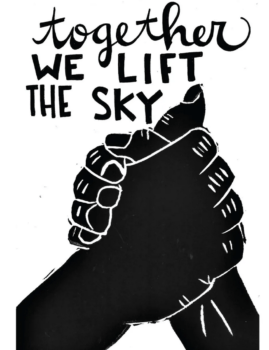I’ve written specifically about prison abolition on this blog. But I haven’t written about modern abolitionism as a movement. Nor have I specified whether I’m an abolitionist. In that previous post, I discussed how disagreements over the concept of ‘prison’ produces misunderstandings. It clouds political debates in ways we can, and should, get past.
Of course, I wrote that first post 4 years ago. These debates took quite a turn in the summer of 2020. A more comprehensive abolitionist movement emerged into the stage of mainstream politics.
How does abolitionism, in its modern form, relate to prison abolition?
What’s an Abolitionist?
Classic ‘abolitionism’ in the United States was about the ending of slavery. But let’s talk about how to characterize modern ‘abolitionism.’ Since slavery has long since been put to rest, to what view(s) does the abolitionist commit? I think we can find three views that, taken together, constitute modern abolitionism:
1. We should abolish prisons.
2. We should abolish police.
3. Policing and prisons are, in many ways, analogous to slavery.
These views seem clear at first glance. But, again, readers of my previous post on prison abolition will likely find things more complicated. Should we abolish prisons and police now? Or should we work toward the eventual abolition of prisons and police? What kinds of policy positions does one commit oneself to when calling oneself an abolitionist?
These aren’t abstract questions. Politicians who use the ‘abolitionist’ label often fight with activists over the answers.
So, Am I An Abolitionist, Too?
Readers probably know I hold some version of (1). I don’t oppose all forms of forced confinement. When a person presents an immediate danger to those around them, we should hold them. Even against their wishes. But I do think we should dismantle the prison system. This entails that lots of people currently in prison – probably as high as 80-90% of them – shouldn’t be confined.
What should we do instead? We should adopt mass public housing, public health care, and other social democratic programs. We can aim these programs at abolishing the underlying conditions that create crime, as Cedric Johnson put it.
But then there’s (2) and (3). Here I take a far more skeptical attitude toward abolitionist claims. I think the question of whether we need policing is largely an empirical question. We should almost certainly reduce the number of police officers. Both in the short term and to an even greater degree over the long term.
But will we ever get to zero police officers? I doubt it. Even in a socialist democracy, we’ll have to deal with issues involving people committing violent acts against others. Some of the people who deal with this violence will take on many of the tasks currently performed by police officers.
We should take an even more skeptical attitude toward (3). Analogies are often useful. And prisons and policing do show some similarity to slavery. Particularly when we consider things like forced prison labor. But prisons and policing are also quite different from slavery in other respects. Differences that are too obvious to bother listing at length.
And so, I have to conclude that I’m probably not an abolitionist, as activists use the term. In the form I’ve presented it here, abolitionism is more a utopian movement than a solid activist goal.
